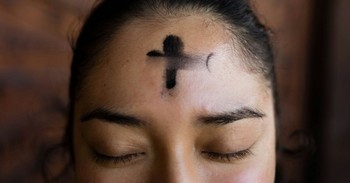Many Christians find inspiration from the story of Esther in the Bible. Although some contend the Book of Esther ought not to be in the Bible because it never mentions God by name, His presence is clear through the unlikely heroine, Esther.
"The king loved Esther more than all the women, and she won grace and favor in his sight more than all the virgins, so that he set the royal crown on her head and made her queen instead of Vashti." (Esther 2:17)
The Book of Esther is one of only two books in the Bible named after a woman. The other is the Book of Ruth.
Who is this woman, and why does she have an entire book named after her? In short, she prevented the first holocaust.
Who is Esther in the Bible?
Esther is a biblical figure and the main protagonist of the Book of Esther in the Hebrew Bible (Old Testament). She was a Jewish queen of the Persian king Ahasuerus (Xerxes I) in the 5th century BCE. The story of Esther is often considered a narrative of deliverance, as she played a crucial role in saving the Jewish people from a plot to annihilate them.
The Book of Esther describes how Esther, originally named Hadassah, becomes queen after winning a beauty contest. Her cousin Mordecai uncovers a plot by Haman, a high-ranking official, to destroy the Jewish people. Esther, risking her own life, reveals her Jewish identity to the king and intervenes on behalf of her people. The king reverses Haman's plot, and the Jewish people are saved.
The story is celebrated annually during the Jewish festival of Purim, which commemorates the events described in the Book of Esther.
Who Wrote the Book of Esther?
The authorship of the Book of Esther is not definitively known, and the book itself does not explicitly identify its author. Traditionally, it is believed to have been written by Mordecai, who is a key character in the story and Esther's cousin. However, there is no definitive historical evidence to support this claim.
The Book of Esther is one of the books of the Hebrew Bible (Old Testament) and is part of the Ketuvim, the third section of the Hebrew Bible. It is accepted as scripture by both Jews and Christians, and its origins are ancient. The authorship remains a matter of scholarly debate, and some suggest that it may have been composed by multiple authors or edited over time.
What Does Esther Mean?
The name "Esther" is of Persian origin and is derived from the Old Persian word "stāra," which means "star." The name is not only found in the biblical context but has also been used in various cultures and languages.
In the Bible, Esther is the Jewish queen of the Persian king Ahasuerus (Xerxes I), known for her courage and role in saving the Jewish people from a plot to annihilate them. The meaning of the name "Esther" is often associated with beauty, grace, and, symbolically, the shining qualities of a star.
The name Esther has been popular in many cultures and is used as a given name for girls in different parts of the world.
Esther Began as Hadassah
Esther’s birth name was Hadassah. She was of the tribe of Benjamin and lived during the time Israel was exiled. Tragically, Hadassah was orphaned at an early age.
After her parents died, she was adopted by her cousin, a man named Mordecai.
This is quite fortunate for Hadassah because Mordecai was a God-fearing man who loved her dearly and raised her well in the face of dreadful circumstances.
Hadassah lived with Mordecai in Susa under the rule of King Xerxes. The king ruled over a sizable area of the world and wanted everyone to know.
For a full 180 days he displayed the vast wealth of his kingdom and the splendor and glory of his majesty. When these days were over, the king gave a banquet, lasting seven days... (Esther 1:4-5).
During the king’s banquet, he summoned his queen, wanting to show off her beauty to his guests, but she refused. King Xerxes was infuriated by Queen Vashti.
Upon consulting the experts in law and justice, a royal decree was issued that changed everything.
The Emergence of Esther
After the king’s fury subsided, a new plan was set in motion that altered Hadassah’s life forever.
“Let a search be made for beautiful young virgins for the king. Let the king appoint commissioners in every province of his realm to bring all these beautiful young women into the harem at the citadel of Susa. Let them be placed under the care of Hegai, the king’s eunuch, who is in charge of the women; and let beauty treatments be given to them. Then let the young woman who pleases the king be queen instead of Vashti.” This advice appealed to the king, and he followed it (Esther 2:2-4).
Once the edict was declared, they started taking the young virgins. Hadassah was taken and emerged as Esther, keeping her nationality a secret per Mordecai’s instructions.
Esther’s Character
Esther was not only beautiful but a woman of honor. In his quest for a new queen, the king dishonored countless young women, stripping them of their virginity and casting them aside to the rank of concubine (sex slave without the title or privileges of queen or wife).
Although Esther had no control over what was happening to her, she took control of her responses with humility and grace.
During the 12 months that Esther was put through the beauty treatments required, it was her character that gained the favor of those in authority.
When her turn came to be brought before the king, she was allowed to bring whatever she wanted with her to garner favor. Instead of manipulation, she chose trust.
…she asked for nothing other than what Hegai, the king’s eunuch who was in charge of the harem, suggested. And Esther won the favor of everyone who saw her (Esther 2:15).
Queen Esther
Esther’s character paved the way for her, and she became queen.
Now the king was attracted to Esther more than to any of the other women, and she won his favor and approval more than any of the other virgins. So he set a royal crown on her head and made her queen instead of Vashti. And the king gave a great banquet, Esther’s banquet, for all his nobles and officials. He proclaimed a holiday throughout the provinces and distributed gifts with royal liberality (Esther 2:17-18).
All this time, Esther kept her heritage a secret, as instructed by Mordecai.
Soon, Esther had the opportunity to stop trouble. Overhearing two of the king’s officers angrily plotting to assassinate the king, Mordecai tells Esther who then reports it to the king, crediting Mordecai.
After an investigation, the truth is confirmed, and the troublemakers are impaled.
More trouble ensues due to a man named Haman, culminating in an impending holocaust. At dinner with the king, Haman speaks,
“There is a certain people dispersed among the peoples in all the provinces of your kingdom who keep themselves separate. Their customs are different from those of all other people, and they do not obey the king’s laws; it is not in the king’s best interest to tolerate them. If it pleases the king, let a decree be issued to destroy them, and I will give ten thousand talents of silver to the king’s administrators for the royal treasury.” So the king took his signet ring from his finger and gave it to Haman…, the enemy of the Jews. “Keep the money,” the king said to Haman, “and do with the people as you please” (Esther 3:8-11).
Dispatches were sent by couriers to all the king’s provinces with the order to destroy, kill and annihilate all the Jews — young and old, women and children — on a single day, …and to plunder their goods (Esther 3:13).
Esther’s Response
Hearing the news, all the Jews began to mourn in sackcloth and ashes, including Mordecai. Esther heard of Mordecai’s mourning and sent him clothes. He refused to accept them.
Deeply distressed, Esther sent her attendants to find out what was troubling Mordecai and why. They returned with the entire story of Haman’s plan of annihilation.
Esther is painfully aware of her circumstances. Although she’s the queen, it’s against the law to approach the king without being summoned.
The penalty for breaking this law, apart from the king's favor, is death. However, on the other hand, if she does nothing, this is what Mordecai says will happen,
“Do not think that because you are in the king’s house you alone of all the Jews will escape. For if you remain silent at this time, relief and deliverance for the Jews will arise from another place, but you and your father’s family will perish. And who knows but that you have come to your royal position for such a time as this?” (Esther 3:13-14).
Esther responds by putting her hope in God and sending word to Mordecai for everyone to fast and pray for three days, saying, “If I die, I die” (Esther 4:16).
God’s Deliverance Through Esther
After three days, Esther courageously put on her royal robes and stood in the place where she might die. But instead of death, the king granted her favor, asking her what she wanted.
With her first request, she began a masterful plan that only God could have given her.
Due to God’s deliverance, Haman was executed, Mordecai was honored, and the Jews were empowered to defend themselves.
For the Jews it was a time of happiness and joy, gladness and honor. In every province and in every city to which the edict of the king came, there was joy and gladness among the Jews, with feasting and celebrating… (Esther 8:16-17).
A yearly celebration called Purim was instituted because of Esther, which reminds us that nothing is impossible with God.
Did Queen Esther Have Children?
The Bible does not explicitly mention Queen Esther having children. The Book of Esther focuses on her role in saving the Jewish people from the plot of Haman during the Persian Empire, but it does not provide details about her family life or whether she had children.
However, according to Jewish tradition, Esther reigned as the queen of Persia for a period of about 13 years. With King Ahasuerus, she had one son, named Darius II, who would later rebuild the holy Temple in Jerusalem.
Photo Credit: ©iStock/Getty Images Plus/ktsimage
Danielle Bernock is an international, award-winning author, coach, and speaker who helps people embrace their value and heal their souls through the power of the love of God. She’s written Emerging With Wings, A Bird Named Payn, Love’s Manifesto, Because You Matter, and hosts the Victorious Souls Podcast. A long-time follower of Christ, Danielle lives with her husband in Michigan near her adult children and grandchildren. For more information or to connect with Danielle https://www.daniellebernock.com/



